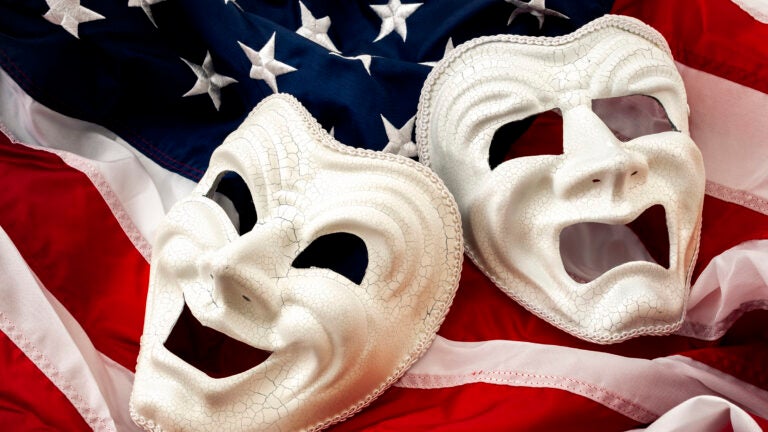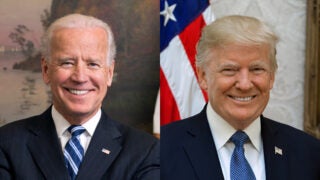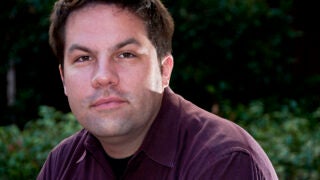
From the earliest days of democracy, politicians have understood the importance of a compelling performance. (Photo/iStock)
A stage for persuasion: Political theater in the 2024 presidential debate
As President Biden and former President Trump gear up for their first debate of the 2024 election season, USC experts explore the enduring connections between politics and theater.
Tonight, President Joe Biden and former President Donald Trump will face off in the first in-person presidential debate of the 2024 election season. With new rules that set it apart from past debates, all eyes will be on how each candidate performs under the revamped format.

“An early-stage debate offers a valuable visual contrast between the two candidates: a showman versus a statesman. Biden, without an audience and with moderators who can mute the mics, I would surmise, gives him an edge over Trump’s showmanship that thrives on an audience, interrupting and using theatrical distractions,” said Christian Grose, an expert on U.S. politics, government and elections.
“On that basis, it’s a moment in time that will have an impact and given low expectations for both candidates, the debate has the chance to really launch one forward.”
The showman versus the statesman
Both candidates have agreed to a new set of rules for tonight’s debate: Microphones will remain muted except when it is their turn to speak, and there will be no studio audience. During the two commercial breaks, candidates will not be allowed to interact with campaign staff.
“This debate is crucial for Biden to counter the narrative of being out of touch and cognitively impaired, especially if Trump appears incoherent on the issues or blatantly lying about his own record. It allows Biden to directly contrast himself with Trump,” said Grose, professor of political science and public policy at the USC Dornsife College of Letters, Arts and Sciences and academic director of the USC Schwarzenegger Institute for State and Global Policy at the USC Price School of Public Policy.
LEARN MORE: What to expect from tonight’s presidential debate — Q&A with Christian Grose
During the first Biden-Trump debate of 2024, the spotlight will be on how each candidate leverages the elements of political theater to shape the narrative of their campaign.
Political science research suggests that most voters have already made up their minds and are unlikely to be swayed, he added. However, debates can significantly influence the small number of undecided voters considering third-party candidates.
“The presentation, style and substance can move the undecideds, turn off those on the fence and mobilize core supporters,” Grose said.
Windmills, sharks and motors: The importance of a coherent narrative
Experts say not all presidential debates are decisive, but this one is where everything is at stake. How each candidate crafts and reinforces their narrative will be key.
Robert Shrum, director of the USC Dornsife Center for the Political Future, cites past elections. For instance, John Kerry won all three debates against George W. Bush in polls during the 2004 presidential election but narrowly lost the election. The upcoming Biden-Trump debate could be as significant as the 1960 televised debate between John F. Kennedy and Richard Nixon, where Kennedy addressed concerns about his experience and ability to lead as commander-in-chief, Shrum said.
“This year, the Trump campaign has made the mistake of lowering expectations for President Biden. If the president turns in a good performance, it could go a long way toward allaying questions about his age and whether he is up to the job,” he said. “And if Donald Trump repeats what he has been doing at his rallies, talking about windmills, sharks and electric motors, without any coherent narrative tying issues together, he is the one who could emerge as someone who can’t be trusted to sit in the Oval Office.”
Crafting the narrative: The power of humor in storytelling
Developing a narrative is more than just telling your story — it’s a strategic art, experts say.
Oliver Mayer, an expert in contemporary American theater, drama and playwriting, said that a strong narrative blends facts, data and historical events to illuminate the choices that shape individuals from the past to the present. But the personal touch, he said, allows us to step into the moment of decision and gain an even deeper understanding of a person’s character.
“From time immemorial, the best storytelling strategy is an active sense of humor,” said Mayer, a professor of dramatic writing, associate dean of strategic initiatives and associate dean of faculty at the USC School of Dramatic Arts.
“A little self-deprecation keeps a candidate humble, and a well-timed zinger and a wry smile can get under an opponent’s skin better than any statistic,” he said. “The more bombastic the opponent, the more well-timed humor becomes a kind of Kryptonite that zaps their cult of superiority. Rather than returning the jest, they tend to respond with irritability, surliness and eventually, threats.”



